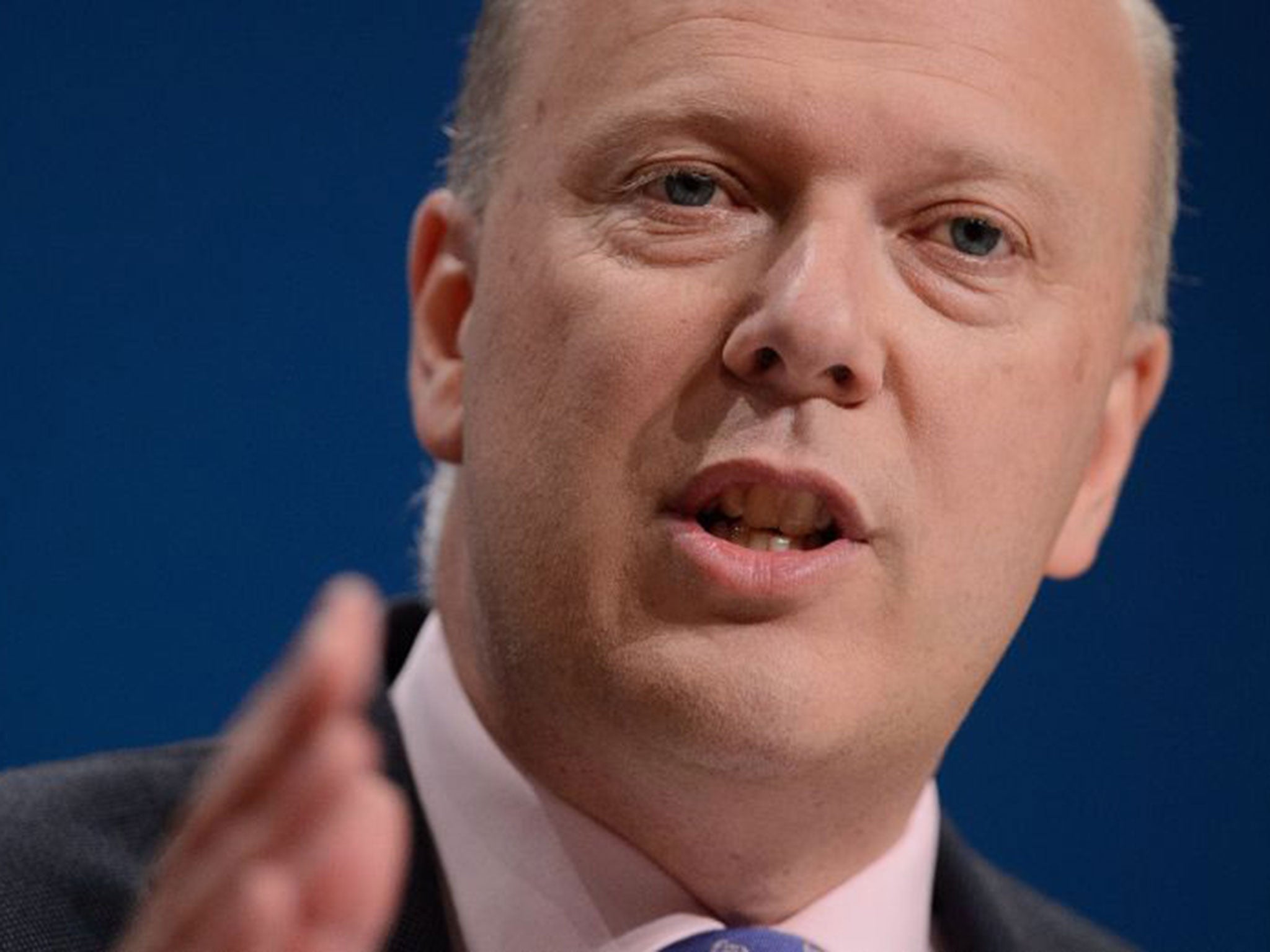Chris Grayling’s legacy is dangerous offenders going unsupervised and more expenditure
The legacy of Mr Grayling's reforms will live on as Michael Gove makes it his mission to reform criminal justice

Your support helps us to tell the story
From reproductive rights to climate change to Big Tech, The Independent is on the ground when the story is developing. Whether it's investigating the financials of Elon Musk's pro-Trump PAC or producing our latest documentary, 'The A Word', which shines a light on the American women fighting for reproductive rights, we know how important it is to parse out the facts from the messaging.
At such a critical moment in US history, we need reporters on the ground. Your donation allows us to keep sending journalists to speak to both sides of the story.
The Independent is trusted by Americans across the entire political spectrum. And unlike many other quality news outlets, we choose not to lock Americans out of our reporting and analysis with paywalls. We believe quality journalism should be available to everyone, paid for by those who can afford it.
Your support makes all the difference.Hundreds of probation officers are losing their jobs. The time they spend with offenders is being cut. There are fears that dangerous people are not being properly supervised in the community.
The turmoil in the probation system is yet another headache for Michael Gove, who has made it his mission to reform criminal justice and improve the dismal reoffending rates in England and Wales.
But it is hard to see how Mr Gove, who on 5 November said he hoped the prison population would fall over time and confirmed that major reforms to sentencing were in the pipeline, can reconcile that aim with the turbulence in probation.
It is another problem he has inherited from Chris Grayling, who also bequeathed him the controversial criminal courts charge, which one Whitehall official describes as the “poll tax in a wig”.
The previous Justice Secretary broke up the 35 public sector probation trusts and replaced them with 21 privately-run “community rehabilitation companies” supervising 150,000 low and medium-risk offenders each year. Responsibility for the most dangerous ex-offenders, including those convicted of violence and sex crimes, remained with the National Probation Service (NPS). The split was rushed into law with limited piloting by Mr Grayling, who had hoped that a mixture of private and non-profit organisations would take charge of the 21 contracts, which include rewards for reducing reoffending.
In fact they have been awarded to eight companies, with voluntary groups complaining they were “bid candy” as they did not have the financial muscle to submit the lowest tenders. Two outsourcing firms, Sodexo and Interserve, clinched more than half the contracts and are now in charge of probation from Hampshire to Northumbria.
The first effects of the part-privatisation are being felt with Sodexo preparing to cut hundreds of officers’ jobs and floating plans for electronic kiosks at which offenders can clock in without seeing a probation officer.
Around 1,800 staff have left the service over the last year and unions have warned that officers are spending less time with offenders because of workload. The NPS has been forced to hire expensive agency staff as it copes with higher-than-expected numbers of potentially dangerous offenders.
The allocation of former prisoners between the private and public sectors depending on perceived risk has led to extra bureaucracy when the Ministry of Justice is meant to be saving money. Some officers say they are dealing with four times more paperwork than before the Grayling reform. Critics also worry public safety could be jeopardised by the split as some offenders will be too high-risk to be supervised by private sector staff and that the financial squeeze means court reports on some sex offenders are not sufficiently detailed.
The National Association of Probation Officers has effectively conceded defeat in its opposition to the overhaul, reluctantly agreeing to try and make the reforms work. Labour describes the plans as “fundamentally flawed”, but recognises the new structure is here to stay.
The Justice Minister, Andrew Selous, argues that the new system means an extra 45,000 low-level offenders – a group prone to recidivism – are being supervised.
But he makes few extravagant claims for its success to date, simply saying that current evidence suggests “performance is broadly consistent with pre-transition levels” as the reforms are “still bedding in”.
There is no prospect of Mr Gove pulling the plug on the probation restructuring. Not that he could if he wanted to – his predecessor agreed to lengthy contracts with the private firms which would cost huge sums to tear up. One legacy of Mr Grayling’s reign will remain.
Join our commenting forum
Join thought-provoking conversations, follow other Independent readers and see their replies
Comments